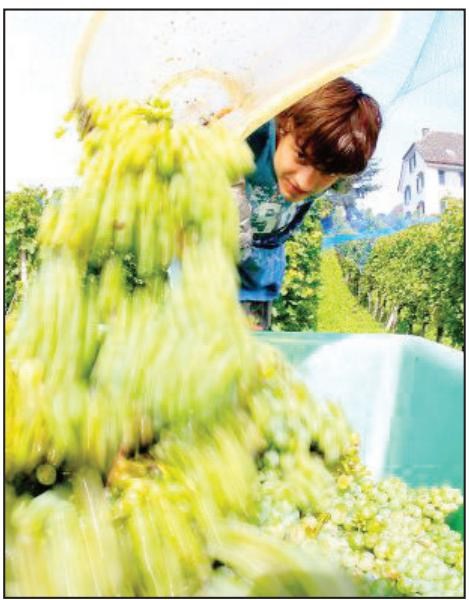Europe is in the midst of another crisis: not debt, but grapes. Yields are sharply lower, down nearly 40 per cent in some parts of Portugal, which means winemakers will have fewer grapes to blend and, in the end, fewer bottles to offer.
The situation is even worse in parts of Burgundy, where hail storms pummelled vineyards in Pommard, Santenay and Volnay destroying 80 per cent of the harvest, according to the Burgundy Wine Board (BIVB). When the growers were not fighting cold weather or hail, mildew and fungus threatened.
"People have been fighting them strictly," said Cecile Mathiaud, BIVB spokeswoman. Noting the uneven growth of grape bunches, a condition known as millerandage, she said it "is bad for quantity, but it is the promise of quality."
One Portuguese winemaker, Bernardo Cabral, of Casa Santa Vitoria, echoed Mathiaud's forecasts, saying, "Fortunately, small berries are correlated with high concentration. So, at this moment, we have very high quality wines in process."
David Baverstock, the winemaker for Portugal's Esporao wines, who is about halfway through the harvest said, "There are cases of yields being down by as much as 40 per cent compared to normal, probably it will turn out to be somewhere between 20 to 30 per cent on average."
In the Loire, one of France's largest wine producing regions, they are just beginning to start the harvest, but they too anticipate lower quantities.
In Spain, the regulatory board of Rioja wines confirmed that its harvests would be smaller.
But "the good news is that consumers won't feel any effect of this loweryields harvest as Rioja has sufficient reserves in terms of volume to fulfill global demand," a spokeswoman for the board said.
Karl Storchmann, editor of the American Association of Wine Economists journal, said "it is safe to say the laws of supply and demand work on any market, including the market for grapes.
"However, if European grape prices are up, that doesn't mean that wine prices for consumers are up. Wineries tend to keep their prices fairly stable. Not too much down in bad years, not too much up in good years," Storchmann said.



